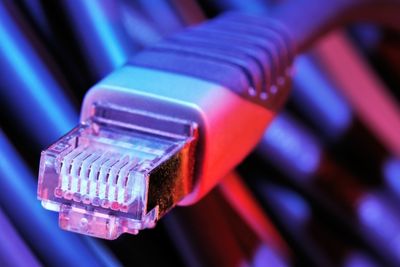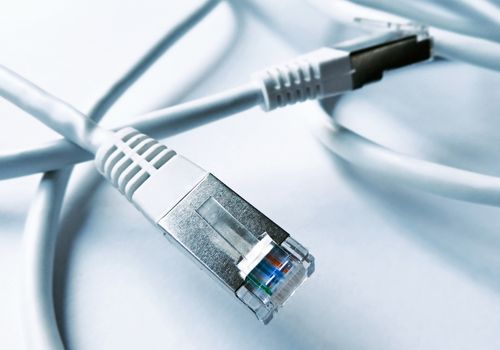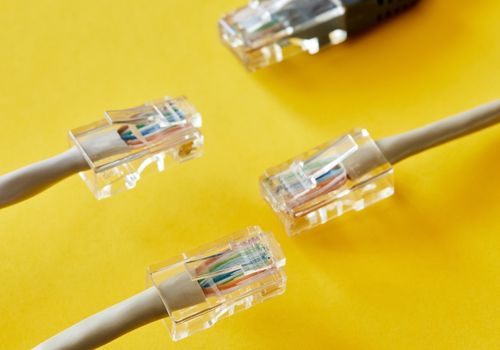
The most noticeable difference between phone cables and Ethernet cables is the plastic connectors on their ends. Telephone cables have 4-6 pinned RJ11 or RJ12 connectors whereas ethernet cables have 8 pinned RJ45 connectors.
When it comes to functionality, ethernet cables are used to interconnect computers with IP networks, while phone cables are meant for telephone internet connections and digital subscriber lines. Just remember that they're rarely used for connecting to the internet anymore.
I actually had my niece come to me recently and ask about phone cables. She was doing a school project on them, and wanted to dive more into how phone cables compare to ethernet cables.
If you'd like to learn more about them too, you'll find the below article useful. I've not only run through how a regular phone cable and the network cabling compare, but a bunch of additional information on the topic that you might like.
Contents
As mentioned, there's a major difference when it comes to what both cables can be used for.

The main difference between them has to be their function. Phone cables are used for telephone line internet connections, while Ethernet network cables are used to connect computers to network devices like a WiFi router that give you high speed internet access.
Ethernet cables are wider than phone cables. This isn't a surprise considering that they come with eight wires, while phone cables only have 4. Not only are Ethernet network cables wider, but they tend to be rounder as well.
Ethernet network cables come with more bandwidth. So, users can send and receive information faster.
On average, telephone cords can operate up to 10 Mbps, while Ethernet cables can go up to 40,000 Mbps.
If you have a tight budget, you should probably avoid using Ethernet cables. They tend to be more expensive and can cost around $1.00 per foot.
Both cables are secure - you don't have to worry about your data being intercepted. There's encryption on the end of both lines.
Although the wires look similar, you can differentiate between them through the connectors they use. Telephone cables use RJ 11/RJ 12 connectors, while Ethernet cables use RJ 45s.
When you examine the connectors closely, you'll see that there is a different number of pins in each. The RJ 11 and RJ 12s have 4-6 pins, while the RJ45s have 8 pins. This pin difference means that the RJ11/RJ12 connectors are smaller in size.
No, you can't plug an Ethernet cable into a registered jack, as it's too wide. However, you can insert a 4 or 6-pin phone cable into an 8-pin Ethernet cable jack.

Answered below are some popular questions.
Fibre optic is the faster option. It can sustain data speeds up to 100x faster than Ethernet cables, under ideal conditions.
Also, fibre optics can handle data transfers over long distances better.
There are quite a few differences between an Ethernet cable and a telephone cable. The first has to do with usage. You can use a telephone cord for a digital subscriber line or telephone connection, whereas bandwidth Ethernet cables can only be used to connect computers to network devices, like switches.
They also differ when it comes to size. There are four wires in phone cables - two are twisted pair cables, while there are eight wires in a network cable/Ethernet cable.
Along with the eight wires, Ethernet cables have more bandwidth compared to home telephone lines. This makes them perfect for long haul transmissions. However, as I mentioned in the Ethernet cable vs fibre optic comparison above, fibre optic wires are faster and can transfer data over longer distances.
